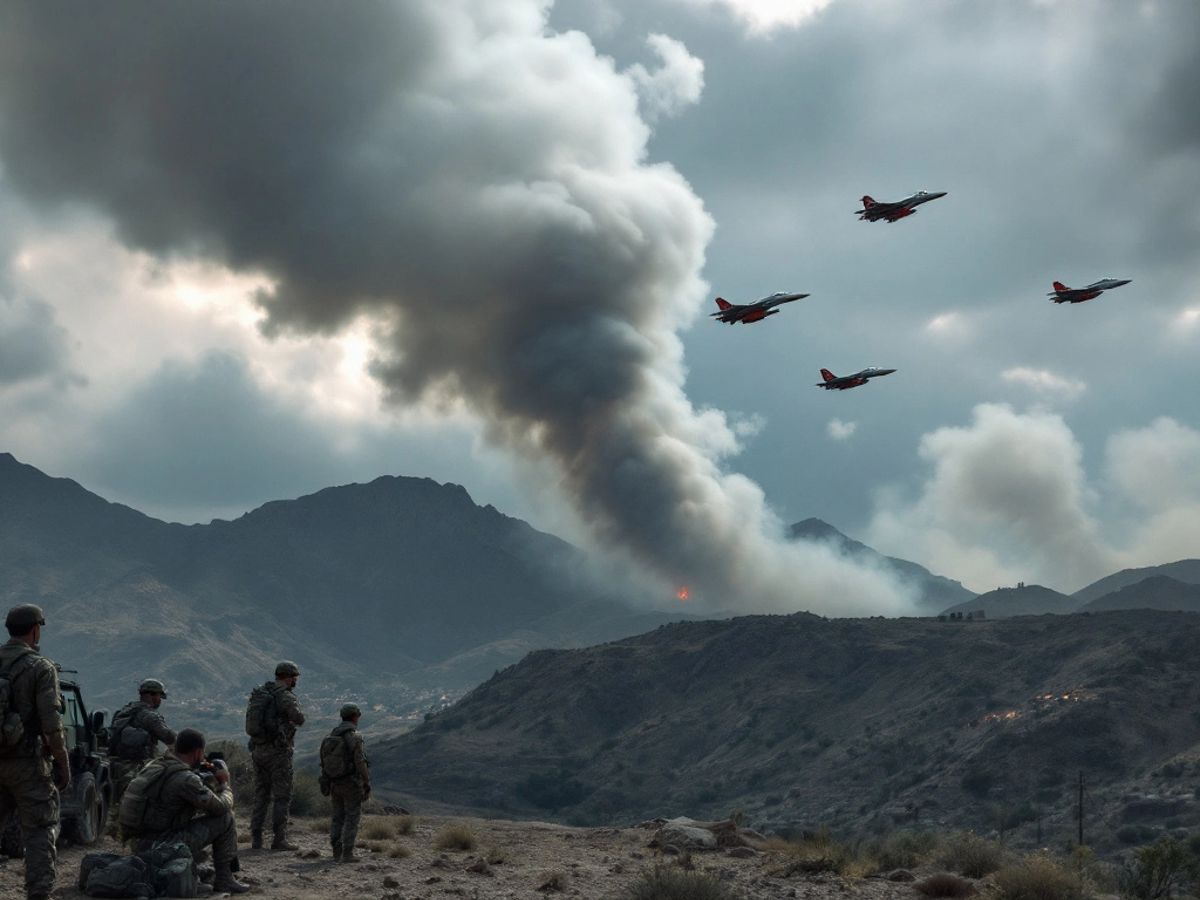Turkey has initiated a series of airstrikes against suspected Kurdish militant positions in Syria and Iraq, following a deadly attack on a defense firm in Ankara that resulted in five fatalities. The Turkish government has attributed the assault to the Kurdistan Workers’ Party (PKK), escalating tensions in the region.
Key Takeaways
- Turkey’s airstrikes targeted over 47 locations in Iraq and Syria.
- The attack on the Turkish Aerospace Industries in Ankara involved two assailants linked to the PKK.
- Civilian casualties reported, including 12 deaths in northeast Syria.
- The PKK has been engaged in a long-standing conflict for autonomy in southeastern Turkey.
Background of the Attack
On Wednesday, two assailants attacked the headquarters of Turkish Aerospace Industries (Tusaş) in Ankara, killing five individuals and injuring over 20 others. The attackers, identified as members of the PKK, used firearms and explosives during the assault, which began around 3:30 PM local time. The Turkish Interior Minister confirmed that both assailants were killed during the incident.
The attack on Tusaş, a key player in Turkey’s defense industry, is significant as the firm designs and manufactures military aircraft and drones, which have been crucial in Turkey’s operations against Kurdish militants.
Turkish Response
In retaliation for the attack, Turkey’s National Intelligence Organization launched airstrikes targeting PKK positions in northern Iraq and Syria. The Turkish Defense Ministry reported that over 30 targets were destroyed, including military and intelligence facilities, energy infrastructure, and ammunition depots.
The airstrikes reportedly involved the use of armed drones, marking a significant escalation in Turkey’s military operations against Kurdish groups in the region. The Turkish government has indicated that these operations may continue in the near future.
Civilian Impact
The Kurdish-led Syrian Democratic Forces (SDF) reported that the Turkish airstrikes resulted in the deaths of 12 civilians, including two children, and injured 25 others. The SDF condemned the attacks, stating that Turkish warplanes targeted populated areas, bakeries, and power stations, exacerbating the humanitarian crisis in the region.
Broader Implications
The recent violence comes amid a complex backdrop of Turkish-Kurdish relations, which have been fraught with tension for decades. The PKK has been fighting for greater autonomy for the Kurdish population in Turkey since the 1980s, leading to a conflict that has claimed tens of thousands of lives.
In a related political context, a prominent Turkish politician recently suggested that Abdullah Öcalan, the imprisoned leader of the PKK, could be granted parole if he renounced violence and disbanded the organization. This statement has sparked discussions about potential peace negotiations, although the immediate military response indicates a hardline stance from the Turkish government.
Conclusion
The situation remains fluid as Turkey continues its military operations in response to the attack on Tusaş. The international community is closely monitoring the developments, particularly concerning the humanitarian impact on civilians in the affected regions. As tensions escalate, the potential for further conflict looms, complicating efforts for a peaceful resolution to the long-standing Kurdish issue in Turkey.
Sources
- Turkey strikes in Syria and Iraq after attack on defence firm near Ankara | Turkey | The Guardian, The Guardian.
- Turkey airstrikes hit Iraq, Syria after deadly Ankara attack, The Spokesman-Review.
- Türkiye pledges support for strengthening UN as global beacon of hope: President Erdogan, Anadolu Ajansı.






